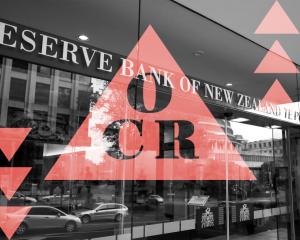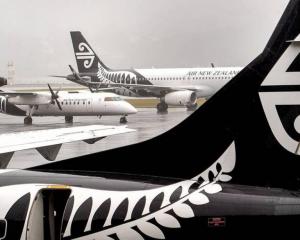
The ASB scoreboard takes quarterly regional statistics and ranks the economic performance of New Zealand’s 16 areas with regional councils.
The ratings are based on measures such as employment, construction, retail trade and house prices, and are updated every three months.
Otago dropped from sixth in the previous quarter rankings to 13th; only Bay of Plenty had a bigger drop. Southland dropped from eighth to 10th.
The ASB report said Otago faced several Covid-19-related challenges.
"Queenstown is enduring a material drop in visitor numbers, while Dunedin is suffering a similar fate in terms of international student arrivals," it said.
"That’s going to remain a challenge for a while yet."
Missing tourists is a theme for many regions that suddenly find themselves in a completely different environment than was imagined only six months ago.
The tourism sector is perhaps the most visible casualty from Covid-19, and it impacts each region by varying amounts.
Due to the loss of international tourism, New Zealand's GDP will be 3% to 5% lower than it would otherwise be.
Retail trade and confidence had taken a hit, but Queenstown was likely to be top of the list for domestic tourists.
"Data shows Kiwi tourists already spend a lot of money in the region, not far behind the amount that international tourists pour in."
Before the lockdown, Southland was benefiting from strong house prices accompanied by a good pipeline of construction work on the way.
And the dairy sector could be a positive for the region if it "fares relatively well".
The Tiwai Point aluminium smelter closing will be a big blow for employment in Southland.
The report said Southland could do well out of domestic tourism as well — sports events, Bill Richardson’s Transport World Museum and Burt Munro memorabilia were "all drawcards".
Gisborne extended its run to top the regional economic scoreboard for four quarters in a row and neighbouring Hawke's Bay and Taranaki have both climbed dramatically up the rankings.
The dry summer was a big challenge at the start of the year, but Covid-19 emerged to become the biggest challenge the country has faced in many years, impacting all areas.
Missing tourists is a theme for many regions that suddenly find themselves in a completely different environment than we imagined only six months ago.
While it had been Gisborne's year, like everywhere, question marks were over the Covid-19 impact on the future, ASB chief economist Nick Tuffley said.
"While the forestry sector was initially hit hard by the disruptions caused by coronavirus, and the meat sector has been impacted too, China's ongoing recovery from its Covid-19 disruption will help to drive a similar recovery in fortunes for these key sectors as well." — Additional reporting The New Zealand Herald












